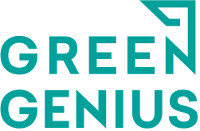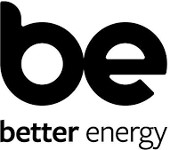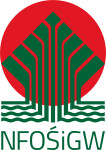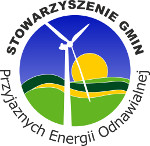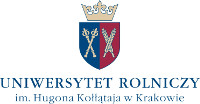| Article Index |
|---|
| Start |
| Gallery |
| Cooperation |
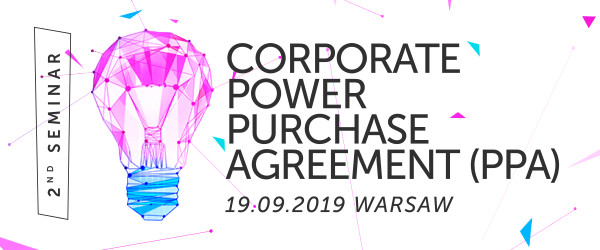
On the market there is a noticeable trend of seeking renewable energy financing outside the auction system. In the case of PPA, corporate players turn their eyes to Poland, but there are barriers. Agreements are negotiated twice as long as in the US.
During the second edition of the "Corporate Power Purchase Agreement (cPPA)" seminar organized by CBE Polska on September 19, 2019, experts presented a wide spectrum of issues related to corporate PPAs, ranging from legal issues to specific examples of investments implemented in this formula in Europe.
Rafał Hajduk, Legal Advisor and Partner at the Domański Zakrzewski Palinka Law Firm, gave a practical hint, among others, model contracts for trading in electricity, natural gas and other energy market goods and instruments proposed by the European Federation of Energy Traders (EFET). Work is currently underway on the preparation of a bilingual English-Polish version and a Guidance Note regarding the use of this formula on the Polish market. It will definitely be helpful, because negotiating PPAs is a difficult, especially in Polish conditions. PPAs are long-term contracts concluded for a period of 10-15 years, so they require some flexibility and a great understanding of the parties. Rafał Hajduk stated that in his experience, most of his PPAs were subject to change during the duration of the contract.
Rafał Rzeszotarski PhD, General Manager at Sun Investment Group, presented examples of implemented cPPA projects from the retail sector and industry in Lithuania. He emphasized that the client profile is of great importance, e.g. constant energy demand has greater economic justification in this type of contracts. - We have not yet carried out any projects in Poland, because the Polish legal environment is very difficult. It is much easier in Lithuania - he emphasized.
The third presentation was given by Krzysztof Müller, Head of Market Poland, Alpiq Energy. In his speech, he focused primarily on discussing how much CPPA protects against global warming and what we can do with the ever-decreasing cost of renewable energy technologies.
„The change in the support structure has initiated new development directions. Renewable energy support ends and certificate prices are exposed to volatility. Europe is waking up and looking at the most advanced US market" - said Annika Yule, Cleantech Client Manager at Schneider Electric Energy & Sustainability Services. She pointed out that corporate players are looking at Poland. They show interest for several reasons: generating savings, emphasizing CSR issues and thus building a competitive advantage. From the perspective of PPA developers, it is a way to obtain some financing (contract concluded with a reliable partner). Therefore, contracts appear as backup options in the event of political climate change (the less public incentives for renewable energy, the better for PPA). Her many years of experience shows that PPAs are negotiated in Poland twice as long as on the US market.
During the seminar the question was asked how PPA would behave in the event of negative prices? Annika Yule said that the risk of negative prices should be borne by the developer, because he has the right technological tools that, for example, will allow you to turn off the renewable energy installation at the right time. However, these issues should be included in the contract. On this occasion, the case of Poland was invoked, where a ban on Sunday trade was introduced, which changed the demand for energy in large-scale facilities. From a PPA point of view, such decisions can have huge consequences.
Francesca Tedeschi from Poyry Management Consulting in Oxford, being the director of the electricity market in Poland, said that "PPA is an excellent tool, but not in all situations and not for everyone." The speaker emphasized that the corporate PPA agreement must be a win-win for both parties - from the very beginning expectations should be clearly defined and the partner with whom we intend to sign the contract should be well known. Pöyry is an international leader in engineering and consulting services. The company creates solutions supporting clients around the world in actions for sustainable development, as well as global trends in urbanization and digitization. Pöyry Management Consulting develops independent market reports (and analyzes) for clients operating on energy markets in Europe, the Middle East, Asia, Africa and the Americas.
Another presentation was given by Better Energy representative Mark Augustenborg Ødum, Executive Vice President. In his presentation "The Art of PPAs - from Scandinavia to Poland" he gave an insight into the Nordic corporate PPA market, explained how to ensure that the terms of PPAs work for the benefit of stakeholders and how to avoid pitfalls. In addition, he shared the experience of the ten and twenty years of CPPA in Denmark implemented by Better Energy. He ended with the thesis that in the future PPAs will be signed not only by large market players but also by small and medium energy consumers for a period of 3-5 years.
A speech on the role of PPAs in the development of photovoltaic and wind farm projects in Poland was given by Grzegorz Wiśniewski, President of the Board at the Institute for Renewable Energy. He emphasized that at the moment we have about 150 wind projects with a total capacity of 2.5 GW and PV projects with a total capacity of 2.2 GW that are ready to take part in the next auction. We don't include projects with building permits here, because there are as many of them.
The last presentation during the seminar was given by Viviana Ciancibello, Senior Business Developer, European Power Derivatives and Dina Lašová, Head of Sales and Customer Relations, Power Exchange Central Europe. They indicated the possibilities of cooperation with EEX Power in the field of security with futures contracts. The speakers emphasized that it is possible to secure energy prices for six years ahead. Financial PPAs are the first guarantee of revenue for the producer and certainty of long-term price for the recipient, but physical flows are performed on the cash market. The production is sold on the stock exchange, the recipient places wholesale orders, thanks to which there is no physical delivery via balancing accounts.
This article was prepared by the CBE Polska team based on the article written by Teraz Środowisko and presentations given / displayed during the second seminar "Corporate Power Purchase Agreement (PPA)", which took place on September 19, 2019 in Warsaw.
Sun Investment Group was the General Partner.
The Strategic Partner was Pöyry Management Consulting.
The Legal Partner of the seminar was Domański Zakrzewski Palinka Law Firm.
The seminar was moderated by Rafał Hajduk, Legal Advisor and Partner at Domański Zakrzewski Palinka.
Green Genius presented itself as an Exhibitor
In addition, the seminar involved: Alpiq Energy SE, Schneider Electric Energy & Sustainability Services, Better Energy, European Power Derivatives, Power Exchange Central Europe, the Institute for Renewable Energy
The event has been held under Honorary Patronage by: National Fund for Environmental Protection and Water Management, National Energy Conservation Agency, Association of Renewable Energy Friendly Communes, National Energy Conservation Agency, University of Agriculture, Institute for Renewable Energy, Polish Solar Energy Association, Association of the Solar Industry.
The translation of the event was provided by BIRETA Professional Translation.




